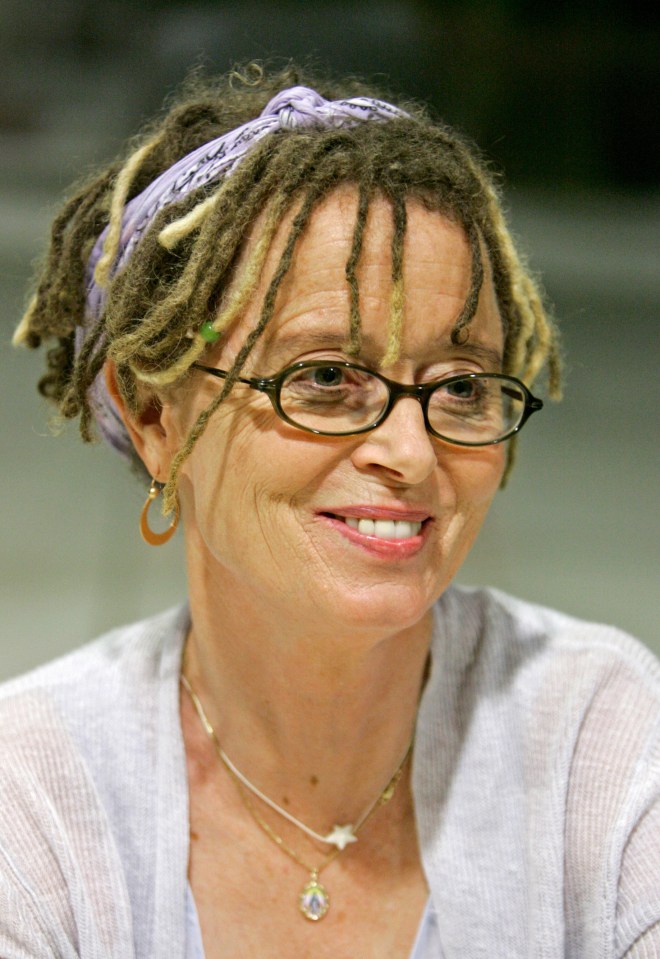Need to catch up?
“Read it.”
He position himself on the ledge of the tub:
“Olivia,
Eight years have passed since that awful day. What can I say that I haven’t before? I am so sorry. I’m sorry. I’m sorry. I’m sorry. I’m sorry. I can’t say it enough. I try to picture your grown up face and how Summer must look. What does Summer think of me? What have you girls grown up to be without your mamas around? What have you girls become? And Elias who he would have been right now? Where would we all be now if I hadn’t done that terrible thing? Can’t go back I know that but I’d give anything to see what you two girls grown up. You two are the only living. Life isn’t easy in here, but it helps to think of you and Summer. I hope it doesn’t hurt anymore. You must still be angry and confused and I don’t blame you. I know I was foolish. I wish I could take it all back. I pray to God Almighty everyday for your forgiveness.
Sincerely,
Donna Henty
“God, Liv. Want me to burn it now?” He placed a hand on my knee. “I’m sorry. I shouldn’t have done that. I didn’t mean to and I don’t—”
I snatched the page from him. Reread it. Pete was still saying something, and the swarm in my stomach hummed loudly. Same words as that first letter. But Summer, her daughter, the one she had been trying to save.
What have you girls become?
You two are the only living.
And then, as I cradled my head in my hands, I spotted it sticking out of the forgotten white envelope.
I pulled the white edge out: a Polaroid. A girl, three or four, stood between a row of Ford trucks. She wore a yellow gingham dress that looked two sizes too small and four years too old. Long blonde hair waterfalled past her shoulders.
I flipped it over. In that same slanted, block writing that matched the envelope: Summer, 1984. I examined the image again, held it up close. My brain spun back all those years ago to the Ventura County Fair. Nothing. Nothing as usual. Not a single shred of memory. No last giggle from my parents, no last picture-perfect image of the happy Simpson family. Despite years of therapy, I couldn’t fashion a thread—or even a frayed end—about the events of that day, my fifteenth birthday. What had Mom worn? Who paid to get into the fair? Had we driven or ridden bikes? How much cotton candy did Dad eat? Every last recollection had been killed with my parents.
I stared again at the girl in gingham. If the newspapers were right, she had been in front of me when Donna shot. With her dad. I tried to envision her, to see her all those years ago: there would have been dirt ground, neon lights and grinding gears of carnival rides, the hawking of barkers, the smell of corn dogs. My therapist had said if I wanted to, I could place myself there; create it and plop myself in the scene. If I wanted to, she’d said.
***
I fell asleep in the valley of Pete’s chest. Twice, I sat upright in the dark of my room, that girl’s face—Summer—her long blonde hair, floating in the dreamy ether. Both times, I searched the shapes on the dresser for the urns. Still there. I’d look at them for a while, desperate to see that day rewound. What had they last said to me? Did they whisper “I love you” in their final moments? Did I try to save them as I’d wished for so many years? Had I cried? What did I—then my eyelids grew heavy again.
The day opened her sleepy eyes to July twenty-sixth. Birds chirped outside my screened porch. I crawled out of bed, glanced at my backpack whose seams stretched, standing ready by the door. Pete had run out for bagels, and I took the opportunity to “pack” my parents. This was really happening. Not possible. My old mantra resurfaced.
The phrase was a leftover fragment from the first weeks, months, after my parents died. While Aunt Karen had spoken with lawyers, credit card companies and banks, I’d gone to the drugstore for a new Rand McNally atlas. It only took me three afternoons to memorize all the countries and capitols in eastern Europe. Voila! Asia took a few hours. I’d dog-eared pages of places I’d convince Mom and Dad to write an article about next. I had learned how to sweep-row earlier that summer, so I’d ride my bike down to the boathouse, plant myself on the erg, pull on the long cord over and over and over until my hands cramped. My lower back, hands and brain grew numb and calloused. I did a mass cleaning of my room, tossed out my collection of twenty-two snow globes from around the world. “Good riddance” Mom would say when she got back. “Now you have room for real treasures,” she’d wink, one emerald eye dim for a half second. I talked about my parents as though they were coming home in three weeks instead of three lifetimes. The calendar sprouted black Sharpied numbers counting the days my parents had been gone: one, two, three, nine, twenty-six, thirty-two…surely they would be back before school began. They were always back before school began.
September marched in; school loomed around the corner. My parents did not. At night, lying in their handcrafted wood and wrought iron bed, I would let my mind fumble with the idea that they might not come home. Not possible, I’d chant.
Day thirty-six. The phyllo-layers of persistent thought that Ken and Joanne Simpson were coming home flaked off one by one. For ten minutes, then thirty and finally sixty minutes at a time, I would repeat my manta: not possible, not possible, not possible. But it did not lull me to sleep anymore, and Mom’s concealer would no longer shade the shadows burgeoning under my eyes. School started on Monday, and if they did not show up—not possible—then I would die—not possible—I would set the house on fire—not possible—I would blame Karen—not possible—I would take a bath and never lift my head from the murky water. Not possible.
Sunday night I perched in their massive bed, knees pinned to my chest with my chin on top. Karen knocked on the door. “School tomorrow, honey. You gonna make it?” she asked through the door. Her voice, placating as usual. Day one of sophomore year at Santa Barbara High School.
Of course I would make it; why wouldn’t I? I didn’t answer, just flipped another page of Mom’s “Joberg” journal.
“Okay, well, let’s leave at 7:00. Do you need me to get you up?” I didn’t answer. She cracked the door.
“No thanks.”
Karen moved into the doorway, the light behind her emphasized her narrow frame. The hem of her purple robe gathered on the floor. She looked at the spread of the bed: sheets that had not been washed in over a month, calendar pages torn and circled, pictures strewn like wind-tossed hair.
She came to the bed and sat down beside me, picked up a picture of my parents and me in Bombay. Her hand touched the crown of my head. “You guys had some wonderful times. I was always envious of the life you led.”
I stared at the picture until the three of us blurred together.
And then, with an exhale, Karen said, “They’re not coming home, honey. And I’m really sorry.”
Her fingers moved in my hair—they felt like ants creeping down my neck. My body shivered. The three of us separated in the picture.
“It’s okay if you don’t want to go to school tomorrow.” Her hand slid down my head to my shoulder; she rose and left the room. As Karen walked down the hall, I heard her soft cry coupled with her bedroom door creaking shut. I had perched atop my clippings, pecking at my mantra—not possible—and Monday morning had flow through the window without a hint of my parents.
My parents. I went to them. Pack them. Take them to Costa Rica. Unleash them into the world again.
I could count the number of times I’d touched the urns. My eyes held the two golden orbs for a minute. I’d never taken the lids off, never seen the ashes inside. The closest I’d come to feeling them was leafing through the ashes of a seagull I’d burned when I was sixteen. I’d cried into that pile of ashes, looking for remnants of life, wondering if Mom and Dad had burned the same way. Pictured some old man with gold rings raking through their ashes, through their bones.
The copper was cool, as usual. I pinched the knobby top of the lid, pinched and pulled and wiggled the close fitting top from its home. In the cavernous mouth of the urn sat my dad. I looked down at the gray shavings. This is my father. Dad. His body. They ground his bones. My eyes searched the ceiling. Help me do this, help me do this…Not possible…Dad. I grabbed the plastic bag and pulled it out of the container. A whole life in this baggie. I set it on the dresser.
Then Mom. And when the lid was released and the smell of things blackened reached my nose, I felt cool wet glide down my face. They were so similar in this muted state: the same rain-cloud color, the same quietitude, same mountainess masses. Three or four pounds of grey gristle. Three or four pounds of Mom. Not possible. Her laugh alone weighed a ton. And I pulled her out, too.
I grabbed both bags, cradled them like newborns against my chest and walked to my bed, where I had laid out a small blue and brown duffel bag. The bag lay unzipped, ready to swallow my parents, but not just yet. The cotton sheet wrinkled beneath me as I crawled up onto the massive bed. I lay down, curled around the bags, clutched them to me. No tears. No words. Just the three of us, quite, a great felled family tree.
When my breathing slowed, I got up and walked over to the blue and brown duffle bag. I had padded the nest of the bag with towels to ensure Mom and Dad didn’t jostle around too much. I held my breath as the zipper mashed its teeth shut. I had purchased a tiny gold key lock, secured its neck around the loop of the zipper tags; clicked it shut. Downstairs, in the junk drawer, I found a long piece of red ribbon and laced it through the keyhole. I tied it around my neck, where it would stay until I found our beach.
I tossed my crisp blue passport on my bed. Unstamped. I had tossed my old passport not long after my parents’ death, sure that I would never have the courage to have the book stamped again. I took my ID, credit and ATM cards from my wallet, thumbed through the back for my emergency phone list.
And just after I finished a cinnamon raisin bagel with extra cream cheese, just after Pete asked, “Well, you ready, Camper?” Just after I made a pee stop and just before Pete tossed my pack in the bed of his truck, I ran upstairs. Swiped the picture of Summer off the bathroom floor, gingham and a grin, and shoved it in my wallet.







